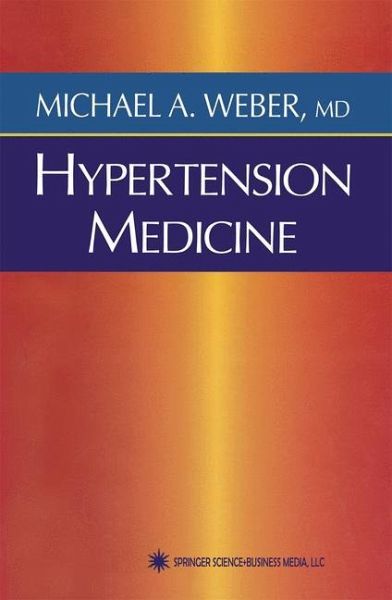
Hypertension Medicine

PAYBACK Punkte
42 °P sammeln!
Michael Weber, MD, and a panel of distinguished authorities provide a comprehensive practical survey focusing on the key issues that determine the who, when, and how of hypertension management. Emphasis is given to the practical issues of management: how to select treatments that optimize results for even the most difficult-to-treat hypertensive patient, and what to do about the major concomitant problems. Examined in detail are the principal underlying mechanisms of hypertension, particularly those that help explain treatment choices, as well as the best techniques for successfully evaluating...
Michael Weber, MD, and a panel of distinguished authorities provide a comprehensive practical survey focusing on the key issues that determine the who, when, and how of hypertension management. Emphasis is given to the practical issues of management: how to select treatments that optimize results for even the most difficult-to-treat hypertensive patient, and what to do about the major concomitant problems. Examined in detail are the principal underlying mechanisms of hypertension, particularly those that help explain treatment choices, as well as the best techniques for successfully evaluating patients before treatment. Authoritative and eminently readable, Hypertension Medicine constitutes a highly practical account of the challenging issues faced daily by family physicians, internists, and general practitioners in the evaluation and optimal management of hypertension.












